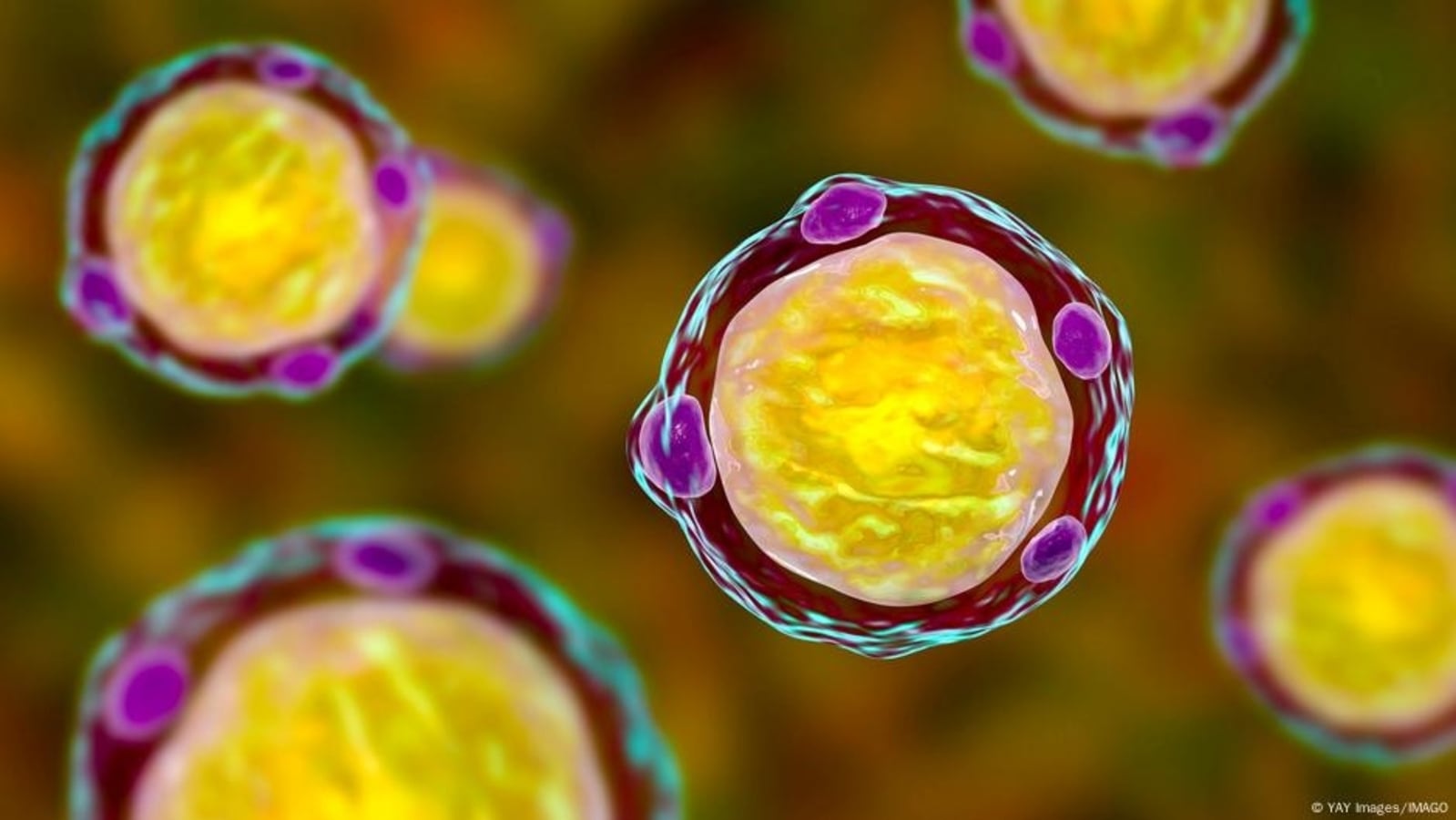Fitness
What is Blastocystis? Study says the gut parasites keep you healthy and lower obesity rates

Your gut is teeming with tiny single-celled parasites called Blastocystis. Gross, right? But a new study shows these gut parasites can be linked to a healthy diet. A study in the journal Cell has found that the presence of Blastocystis in the human gut could be linked with better health outcomes in a sample population from 32 different countries.
“We found that the presence of Blastocystis in the human gut is linked with a better cardiometabolic profile and lower obesity rates,” said the study’s co-lead Francesco Asnicar of the University of Trento, Italy. (Also Read | Gond katira to sabja seeds: Soak these foods overnight to boost your gut health)
The study also put 1,124 participants on a Blastocystis-rich diet of less-processed and fiber-rich foods, which “significantly improved the quality of their diet and weight loss,” said Asnicar.
What is Blastocystis?
Blastocystis is a type of microscopic, single-cell microbe — microorganisms, such as bacteria — that lives in the guts of humans and non-human animals.
As well as living in the gut, the bacteria can also infect skin and mouths . When they are good, they can play a major role in our being healthy. They make up what’s known as the microbiome.
“So far, [the] research has focused on the bacterial [microbiome] , but the role of other microorganisms, including Blastocystis, is largely understudied,” said the study’s other co-lead Elisa Piperni of the University of Trento, Italy.
Blastocystis is a somewhat controversial group of microorganism because scientists have been unable to agree on whether the parasite are harmful or not. (Also Read | Switching from coffee to matcha reverses ageing? Experts explain)
“Up to now, there was no evidence of any direct role for Blastocystis in promoting health. To be on the safe side, all Blastocystis were categorized as a harmful intestinal parasite,” said Sara Vieira-Silva, a microbiologist at Johannes Gutenberg University Mainz in Germany.
Vieira-Silva, who was not part of the University of Trento study, said the new findings helped clear up the debate: It provided “additional support that some Blastocystis subtypes are part of a balanced gut microbiome in healthy individuals.”
A Blastocystis infection is called blastocystosis. It can cause diarrhea, abdominal pain, anal itching and gas, among other symptoms.
Part one of the study: Blastocystis and general health
The researchers analyzed data from nearly 57,000 individuals across 32 countries.
They looked at how Blastocystis levels in the gut related to diet, cardiovascular health, and metabolic factors, such as obesity and diabetes.
Higher gut Blastocystis levels were linked to indicators of better cardiometabolic health — that means lower chances of heart attacks, obesity, and diabetes — whereas lower Blastocystis levels were associated with long-term health issues, including obesity.
The study also found considerable differences in the subtypes of Blastocystis, depending on a person’s age, geography [where they live] and lifestyle.
Newborns, for example, do not have Blastocystis. The microorganisms establish themselves when we get older and start eating complex foods.
Luis Pedro Coelho, a computational biologist at Queensland University of Technology in Australia, said the geographic spread of the study, with data from 32 countries, added weight to the findings.
“It [shows] a complicated picture,” said Coelho. “I would have expected that the Westernized samples would look very similar to each other compared to others, but here the US and Europe and China are all very different.”
Part two of the study: Six-month Blastocystis diet
During the study, 1,124 healthy people were enrolled in a six-month personalized dietary program, bookended by pre- and post-intervention gut microbiome sampling.
The participants followed personalized food-level advice, based both on food and person-specific characteristics.
“We found that participants significantly improved their diet quality and lost weight and we observed a significant increase in Blastocystis [to] a relative abundance,” said Asnicar.
Weight loss average at 1 point of body mass index (BMI). BMI is a way of categorizing an individual’s weight and potential health problems.
It wasn’t possible to pinpoint which specific food items increased the abundance of Blastocystis in the gut. But, overall, individuals who consumed higher quantities of unprocessed, plant-based foods such as avocados, nuts, seeds, legumes, and green vegetables were more likely to have Blastocystic-rich microbiomes.
Maria Vehreschild, a physician-scientist at Frankfurt University Hospital, was not surprised that the diet led to an improvement in health outcomes.
“This has been widely known for a long time. The hard part is to change the eating habits of people. Most of us know what is healthy, but that does not mean that we change our diet accordingly,” said Vehreschild, who was not involved in the study.
Do Blastocystis cause a healthier lifestyle?
It’s not clear from the study whether the presence of Blastocystis directly leads to better health or whether it indicates a healthy lifestyle in general, said Coelho.
“There is no causal evidence that they have a positive effect on health. Particularly, given that they can be predicted by the rest of the (bacterial) microbiome, they could just be indicators of general good health,” he said.
Asnicar raised the same issue, saying that the research team did not yet know what “potential effect” Blastocystis presence had on a person’s health: “Several genetic, genomic, and functional aspects of Blastocystis remain to be elucidated,” he said, adding that further experimental studies were needed.
Catch your daily dose of Fashion, Taylor Swift, Health, Festivals, Travel, Relationship, Recipe and all the other Latest Lifestyle News on Hindustan Times Website and APPs.










